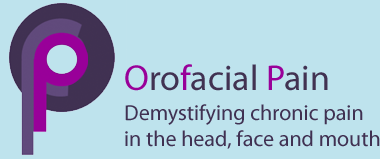Referral advice for patients
What to expect when you are referred for consultation
In order to see any specialist you require a referral from either your dentist or doctor. This is usually done by letter. One the letter (or fax/email) referral is received then the appointments process starts. Depending upon the type of service and which hospital you have been referred to the appointment will be secured by letter confirmation followed by a phone call confirmation. See more information on patient/pain pathways.
You may also be asked to complete your history, details about your pain condition and psychometrics questionnaires.
- Goals of treatment
- Pain diary
- List current medications
- History of previous consults, tests and results
What is needed to make a diagnosis
The specialist will need to fully understand the treatment details and the patients’ problem and will need to ask further questions and look through provided patient information. In making a diagnosis of trigeminal nerve injury, imaging tests (X-rays), such as magnetic resonance imaging (MRI) or computed tomography (CT) scans of the brain, may be conducted. In addition the specialist may ask you to have some blood tests.
These tests are used to eliminate some causes of trigeminal neuralgia, such as lesions, aneurysms or multiple sclerosis which are not usually present in patients with nerve injuries.
Once all the examination and tests are completed the specialist will confirm your diagnosis and give you an explanation of what may be possible to help.
Possible treatments
- Counselling and cognitive behavioural therapy – in individual or group patient sessions.
- Medication for pain sometime tablets sometimes numbing patches – often the patient is referred back to their doctor if medication is needed.
- Surgery is rarely carried out for this condition as it can make patients worse on some occasions
After treatment the specialist will ask the patient to complete further questionnaires and feedback forms. The specialist continues to monitor many patients as some injuries do not require actual treatment as they are improving over 3- 6 months. After the consultation the specialist write letters to the person who referred you to us and you are copied in.
Your treatment may be delayed. Please be aware of NHS waiting times (maximum 18 week national target).
After your appointment
After your appointment you will be asked to complete outcome assessment and your referring clinician will get an outcome letter which will be copied to you usually 10-14 days after your appointment.

